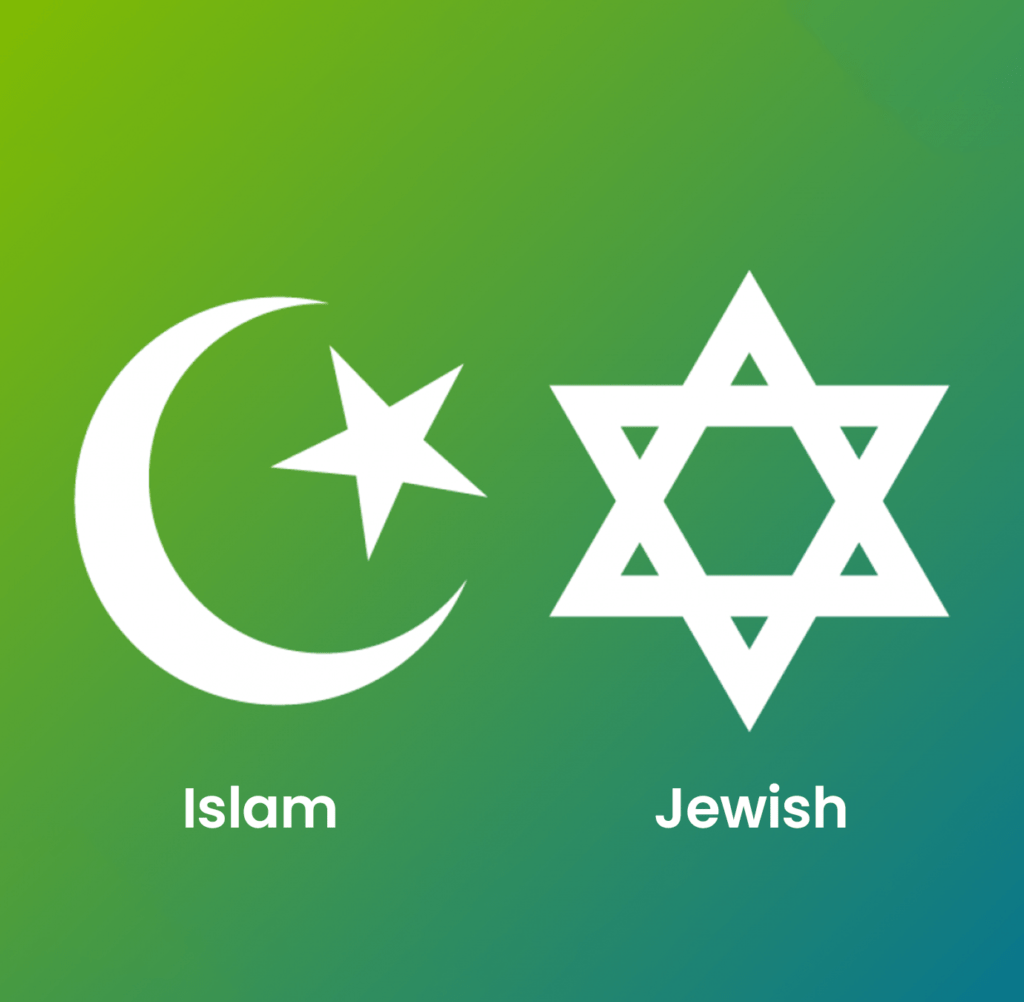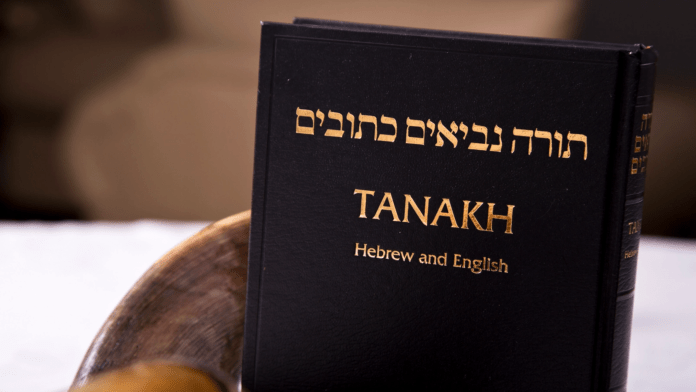“Lighthouses don’t go running all over an island looking for boats to save; they just stand there shining.” – Anne Lamott
The Tanakh (Hebrew Bible) and the Quran are two sacred texts considered revelation from God by Judaism and Islam respectively. Both sacred texts are considered foundational stones of faith. The Tanakh is acronym for Torah (five books of Moses called Khumash in Hebrew), Navi’im (Prophets) and Ketuvim (Writings). The Torah is called sefer (book) and the Quran um al kitab (mother of books). Both texts share several commonalities in terms of themes, narratives, and ethical teachings and are at the same time quite different. One can pick any side depending on what one is trying to convey. In the inter-faith interactions, participants stress commonalities sometimes exaggerating the similarities or trying to find common ground where none exists. On the other hand, polemics with aim of denouncing the other side can give a long list of differences between two texts. Tanakh is written Torah and considered by Jews it was revealed to Moses on Mount Sinai. It forms the basis of Halacha (Jewish law). The Quran is believed by Muslims to be revealed to Muhammad (PBUH) and forms the basis of Sharia (Islamic law).
Common ethical values are not limited to monotheistic religions, but they are universal values. Every faith and even atheists hold compassion, justice and caring for parents, neighbors and poor as desirable traits and there is no surprise that these values are found in the Torah and the Quran. Islam confirmed the validity of previous revelation of Torah and message of Israelite prophets. However, it took the position that the message of previous prophets was forgotten or misunderstood, and the sacred text was corrupted. Islam claimed to be an improvement of previous message and new message of Quran superseded it.
Judaism had a complex relationship with their Ishmaelite cousins but believed that only the Torah was the revealed text and rejected any further prophetic traditions. However, it accepted salvation of righteous non-Jews under the umbrella of Noahide Covenant (God’s covenant with children of Noah of salvation if they observe seven laws). After the destruction of the second temple in 70 AD, Jews never held political sovereignty and were scattered all over the world. On the other hand, after its emergence in the seventh century in the Arabian Peninsula, Islam spread all over the globe giving birth to several empires spanning over several centuries. Jews were better tolerated in Muslim societies compared to Christendom. Common origins of both monotheistic faiths helped Jews to survive in Muslim lands albeit as second-class citizens. A minority must tread carefully as a single misstep can make the difference between acceptance to annihilation. Jewish scholars used Islamic texts claiming special status to ensure protection. Their condition depended on the personality of the ruler who could justify protection or persecution by selectively using the sacred text.
The Torah was canonized three centuries before the advent of Islam therefore there is nothing in it about the future religion. It has the story of Ishmael and his complex relationship with his brother Isaac that some biblical commentators extrapolate to Arabs and Muslims as they are the progeny of Ishmael. Some are depicted as enemies of Israelites and called Hagarites clearly referring to children of Hagar (Hajirah in Arabic). On the other hand, God confirms his blessing of Ishmael

“As for Ishmael, I have heeded you. I hereby bless him. I will make him fertile and exceedingly numerous. He shall be the father of twelve chieftains, and I will make of him a great nation” (Genesis 17:20-21).
In the early stages of Islam, relations with Jews evolved from close cooperation and alliance to outright hostility and expulsion of Jewish tribes from the Arabian heartland. The Quran comments about Judaism as well as the Torah. The most extensive reference is in the fifth chapter (sura) al Maida and as this chapter is one of the last chapters revealed therefore one can assume that this is the final verdict about Jews. This chapter is a mixture of some very harsh comments but also avoids general condemnation of Jews and explains area of cooperation.
The Quran draws the line between Muslims and the people of the book cautioning against alliance with them by stating that
“O believers! Take neither Jews nor Christians as guardians—they are guardians of each other” (al Maida 5:51) and “O believers! Do not seek the guardianship of those given the Scripture before” (al Maida 5:57).
It then separates Jews and Christians in their attitude towards Muslims stating that
“you will surely find the most bitter towards the believers to be the Jews and polytheists and the most gracious to be those who call themselves Christian. That is because there are priests and monks among them and because they are not arrogant” (al Maida 5:82).
The harshest condemnation is reserved for those Jews who desecrated Sabbath (Jewish day of rest)
“you are already aware of those of you who broke the Sabbath. We said to them, “be disgraced apes” (al Baqarah 2:65).
At the theological level, the Quran recognizes the Torah as revelation from God stating that
“indeed, We revealed the Torah, containing guidance and light, by which the prophets who submitted themselves to Allah, made judgments for Jews. So too did the rabbis and scholars judge according to Allah’s Book, with which they were entrusted and of which they were made keepers. So do not fear the people; fear Me! Nor trade my revelations for a fleeting gain. And those who do not judge by what Allah has revealed are ˹truly˺ the disbelievers” (al Maida 5:44).
The Quran also recognizes God’s covenant with Jews in verses
“Allah made a covenant with the Children of Israel” (al Maida 5:12) and “remember Allah’s favors upon you when He raised prophets from among you, made you sovereign, and gave you what He had never given anyone in the world” (al Maida 5:20).
The Quran confirms the salvation of Jews by stating that
“indeed, the believers, Jews, Sabians and Christians—whoever ˹truly˺ believes in Allah and the Last Day and does good, there will be no fear for them, nor will they grieve” (al Maida 5:69).
The Quran recommends returning to the original message
“O People of the Book! You have nothing to stand on unless you observe the Torah, the Gospel, and what has been revealed to you from your Lord” (al Maida 5:68).
The Quran confirms the authenticity of the message of the Torah and condemnation of some among Jews is due to their conduct. The Quran separates the wrongdoers from true believers among Jews in the verse
“the disbelievers among the Children of Israel were condemned in the revelations of David and Jesus, son of Mary. That was for their disobedience and violations” (al Maida 5:78).
The Quran qualifies condemnation of Jews to only those who rebelled and in the same sentence directed Muhammad (PBUH) to pardon them stating that
“but for breaking their covenant We condemned them and hardened their hearts. They distorted the words of the Scripture and neglected a portion of what they had been commanded to uphold. You ˹O Prophet˺ will always find deceit on their part, except for a few. But pardon them and bear with them”. (al Maida 5:13).
In the same chapter another verse states that
“some among them are upright, yet many do nothing but evil”
while at the same time emphasizing that if they follow God’s commandments, they will again get God’s favor stating that
“had they observed the Torah, the Gospel, and what has been revealed to them from their Lord, they would have been overwhelmed with provisions from above and below” (al Maida 5:66).

Rabbinic traditions also blame the destruction of first and second temples and persecution of Jews due to non-adherence to God’s commandments. Muslim commentators give the same reason that Allah punishes Muslims as they have forgotten the message.
At the social level the Quran allows the most intimate relationship of marriage with Jewish women (al Maida 5:5). This fact alone turns upside down the whole argument about general condemnation of Jews. If a group is considered so hostile, then how can you give a Jewish woman the most important task of bearing and raising your children?
One of the most fundamental similarities between the Torah and the Quran is strict emphasis on monotheism emphasizing the oneness and supremacy of God, known as Yahweh in Torah and Allah in the Quran. This shared monotheistic belief forms the cornerstone of both Judaism and Islam, underscoring the unity and transcendence of the divine. Torah’s verse
“Hear, O Israel: The Lord our God, the Lord is one” (Deuteronomy 6:4)
and Quranic verses
“Say, He is Allah, [who is] One. Allah, the sustainer. He has never had offspring, nor was He born. And there is none comparable to Him.” (al Ikhlas 112:1-4)
conveys the same message. The Torah and the Quran contain accounts of various prophets who are revered as messengers of God. Figures such as Adam, Noah, Abraham, Isaac, Jacob, Joseph, Moses, and David are prominently featured in both texts, albeit with some variations in narrative details. These prophets are depicted as conveying divine message and guiding towards righteousness, justice, and obedience to God’s commandments. Abraham is considered patriarch by both faiths. The prophetic tradition serves as a link between Judaism and Islam, emphasizing the continuity of divine revelation throughout history. The accounts of creation of the universe and man, Adam and Eve, Noah’s Ark, and the exodus of the Israelites from Egypt are examples of narratives that are present in both texts, albeit with variations in details and interpretations.
Both texts emphasize ethical teachings and moral principles including compassion, justice, honesty, and charity as integral aspects of righteous living. They condemn practices such as oppression, injustice, and exploitation, urging believers to uphold ethical standards in their personal conduct and societal interactions. The emphasis on ethical conduct underscores the shared moral values inherent in Judaism and Islam, fostering a sense of accountability and responsibility towards fellow human beings. The Torah commands
“You have been told, O mortal, what is good. And what God requires of you? Only to do justice and to love goodness and to walk modestly with your God” (Micah 6:8).
Quranic verses
“indeed, Allah commands you to return trusts to their rightful owners; and when you judge between people, judge with fairness” (al Nisa 4:58)
echoes the same words. The Torah’s verse
“Do not pervert justice; do not show partiality to the poor or favoritism to the great but judge your neighbor fairly” (Leviticus 19:15)

and The Quran uses the same language
“O believers! Stand firm for justice as witnesses for Allah even if it is against yourselves, your parents, or close relatives. Be they rich or poor, Allah is best to ensure their interests. So do not let your desires cause you to deviate from justice. If you distort the testimony or refuse to give it, then know that Allah is certainly all aware of what you do” (al Nisa 4:135).
Charity and helping the poor is stressed in the Torah
“he who is generous to the poor makes a loan to the LORD; He will repay him his due” (Proverbs 19:17).
Quran uses the same language
“indeed, those men and women who give in charity and lend to Allah a good loan will have it multiplied for them, and they will have an honorable reward” (al Hadid 57:18).
The Torah and the Quran share numerous similarities in terms of monotheistic belief, prophetic traditions, and ethical teachings. However, there are differences in details, theological interpretations, and cultural contexts. The commonalities underscore the interconnectedness of Judaism and Islam as Abrahamic faiths rooted in shared spiritual heritage. On the other hand, differences suggest that two faiths emphasize separateness and uniqueness of the message. Focus on similarities can foster greater understanding, dialogue, and mutual respect, contributing to interfaith harmony and cooperation in an increasingly diverse and violent world. True wisdom comes from reading the sacred texts with a spiritual awareness that leads to inner peace that must come first before attempting to bring peace to the world around us. In the absence of it, sacred text is simply a collection of stories of the forefathers. It is about religion and not about the divine and only owner’s manual of a religious tradition. This distinction is not just academic but has real life consequences. When people cling to the sacred text in the absence of divine grace then they feel perfectly comfortable killing others over some stones and bricks that they believe where their ancestors worshiped. If this is not idol worship, then we must find a new definition for the gravest sin condemned in the Torah and the Quran. On the other hand, when divine grace elevates the soul above the text then man jumps into the river or a raging fire risking his own life to save the life of a totally stranger that he never met before regardless of his race, color, or religion.
“Only God can put scripture inside. But reading sacred text can put it on your heart, and then when your heart breaks, the holy words will fall inside.” Anne Lamott

Notes
• A History of Jewish-Muslim Relations – From the Origins to the Present Day (Princeton: Princeton University Press, 2013)
• A History of Jewish-Muslim Relations – From the Origins to the Present Day (Princeton: Princeton University Press, 2013)
• Sefaria. This is the most comprehensive site of Jewish texts. Translations used in this article are from this site. https://www.sefaria.org/texts
• The Noble Quran. An easy to use site with Arabic text and English translation. Translations used in this article are from this site. https://quran.com/en





